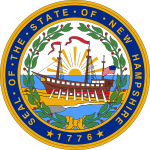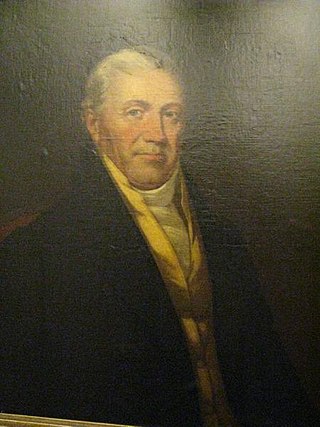
Benjamin Pierce was an American politician who twice served as the governor of New Hampshire from 1827 to 1828 and from 1829 to 1830. Pierce fought during the American Revolutionary War before becoming a Democratic-Republican Party politician. He was the father of Franklin Pierce, the 14th president of the United States.
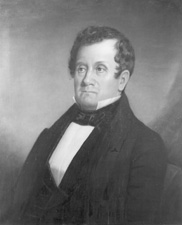
John Page was an American farmer and politician from Haverhill, New Hampshire. He represented New Hampshire in the United States Senate and served as the 17th governor of New Hampshire from 1839 to 1842.

The 1826–27 United States House of Representatives elections were held on various dates in various states between July 3, 1826, and August 30, 1827. Each state set its own date for its elections to the House of Representatives before the first session of the 20th United States Congress convened on December 3, 1827. They occurred during John Quincy Adams's presidency. Elections were held for all 213 seats, representing 24 states.
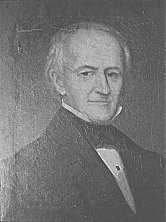
Henry Hubbard was a member of the United States House of Representatives from 1829 to 1835, a Senator from New Hampshire during 1835 to 1841, and the 18th governor of New Hampshire from 1842 to 1844.

Joseph Cilley was a United States senator from New Hampshire.

Joseph Morrill Harper was an American physician, banker and Jacksonian politician in the U.S. state of New Hampshire. He served as a member of the United States House of Representatives, the New Hampshire State Senate and the New Hampshire House of Representatives and was acting governor of New Hampshire.
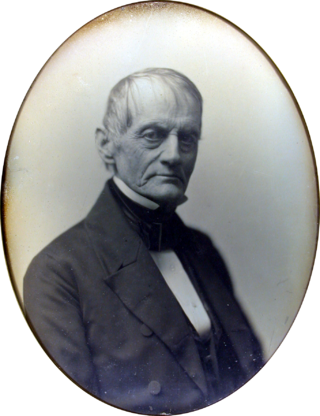
William Appleton was an American businessman and politician from Massachusetts. He was a trader, shipowner, and banker, and served as a U.S. representative from Massachusetts from 1851 to 1855, and again from 1861 to 1862.
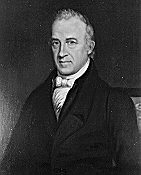
Arthur Livermore was an American politician and attorney who served as a United States representative from New Hampshire.
Joseph Weeks was a United States Representative from New Hampshire. He was the grandfather of Joseph Weeks Babcock who represented Wisconsin in the United States Congress from 1893 to 1907. He was born in Warwick, Massachusetts, where he attended the common schools. Later, he moved to Richmond, New Hampshire, where he engaged in agricultural pursuits.
David Barker Jr. was an American politician and a U.S. Representative from New Hampshire.

James Church Alvord was a U.S. Representative from Massachusetts.
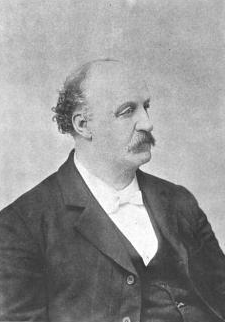
James Frankland Briggs was an American politician and a U.S. Representative from New Hampshire.
Joseph Richardson was a U.S. Representative from Massachusetts.
William Wilson was a 19th-century American lawyer and politician who served two terms as a U.S. Representative from Ohio from 1823 to 1827.
William Burleigh was a United States representative from Maine. He was born in Northwood, New Hampshire, on October 24, 1785. He moved with his parents to Gilmanton, New Hampshire, in 1788 where he attended the common schools and taught for several years. He then studied law, was admitted to the bar in 1815 and commenced practice in South Berwick, Maine.

Matthew Harvey was a United States representative from New Hampshire, the 13th governor of New Hampshire and a United States district judge of the United States District Court for the District of Massachusetts.

The 1824–25 United States Senate Elections were held on various dates in various states. As these U.S. Senate elections were prior to the ratification of the Seventeenth Amendment in 1913, senators were chosen by state legislatures. Senators were elected over a wide range of time throughout 1824 and 1825, and a seat may have been filled months late or remained vacant due to legislative deadlock. In these elections, terms were up for the senators in Class 3.
Massachusetts elected its members November 6, 1826. It required a majority for election, which was not met on the first vote in 3 districts requiring additional elections held March 5 and May 14, 1827.

New Hampshire elected its members March 10, 1829 after the term began but before Congress convened.

The 1827 New Hampshire gubernatorial election was held on March 13, 1827.
This page is based on this
Wikipedia article Text is available under the
CC BY-SA 4.0 license; additional terms may apply.
Images, videos and audio are available under their respective licenses.
